Duration
1 Day Trip
Tour Type
Private
Transportation
Bus
Description
Best 2 Day Trip to Luxor from Marsa Alam Explore Ancient Egypt’s Wonders Embark on an unforgettable Luxor from Marsa Alam and discover the treasures of ancient Egypt. This two-day private tour takes you to Luxor’s most iconic landmarks, including the majestic Temple of Karnak, the legendary Valley of the Kings, the stunning Temple of Queen Hatshepsut, and the towering Colossi of Memnon. Led by a knowledgeable Egyptologist guide, you’ll dive deep into the history and mysteries of this open-air museum.
Why You’ll Love This Luxor from Marsa Alam
- Exclusive Private Guide: Enjoy a personalized experience with an expert Egyptologist.
- Historical Wonders: Walk among pharaohs’ tombs, grand temples, and ancient monuments.
- Comfortable Travel: Relax on a scenic 4-hour drive from Marsa Alam with stops for breaks.
- Family-Friendly: Perfect for all ages, with special discounts for children.
Luxor Tour Itinerary
Day 1:
- Depart from your Marsa Alam hotel at 5:00 AM.
- Explore the Valley of the Kings, home to Tutankhamun’s tomb.
- Visit the Temple of Queen Hatshepsut, a masterpiece of ancient architecture.
- See the Colossi of Memnon, giant statues guarding the Theban necropolis.
Day 2:
- Discover the Temple of Karnak, the largest religious complex in the world.
- Stroll through Luxor Temple, a stunning monument lit beautifully at night.
- Return to Marsa Alam with unforgettable memories.
Tour Details
- Duration: 2 Days
- Price: $250 (Children discounts available)
- Departure: Daily from your hotel
- Inclusions: Private guide, transportation, and entrance fees (exclusions: meals & tips).
What’s Included in Your Trip To Luxor From Marsa Alam
- Hotel pickup and drop-off in Marsa Alam
- Transport by private air-conditioned vehicle
- Round Trip from Marsa Alam to Luxor and Return
- Meals (2 lunch meals)
- Bottled water throughout your trip
- All sightseeing tours mentioned in the itinerary
- All Entrance fees
- Beverages including mineral water and tea
- A professional Egyptologist Guide
- Night accommodation at hotel in Luxor (BB)
- Visiting Valley of the kings
- Visiting the temple of Hatchepsut
- Visiting the Colossi of Memnon
- Visiting Karnak temple
- Visiting Luxor Temple
- All taxes and service charges
What’s Not Included
- Gratuities
- Any personal Expenses
Pricing & Child Policy
Trip To Luxor From Marsa Alam Prices are in USD per person (excluding peak seasons like Christmas and Easter).
- 0 – 1.99 yrs: Free
- 2 – 5.99 yrs: 25% of adult price
- 6 – 11.99 yrs: 50% of adult price
- 12+ yrs: Full price
Note: Children sharing a room with parents (max 2 per room) enjoy discounted rates.
Book Your Trip to Luxor from Marsa Alam Today!
Don’t miss this chance to explore Luxor’s ancient wonders in just two days. Whether you’re a history lover or an adventure seeker, this Trip to Luxor from Marsa Alam is the perfect getaway. Reserve now for an epic journey through time!
Tour Plan
At 05:00 AM our representative will pick you up from your hotel in Marsa Alam by air-conditioned modern van to Aswan, approximately 04:00 hours far from Marsa Alam. Then proceed to Luxor to start your unforgettable 2 days Luxor trip from Marsa Alam with a private A.C. car to visit.
Valley of The Kings from Marsa Alam
Valley of the Kings is just like a story you hear before sleeping but in actual life. You’ll be face to face with the tombs of the great ancient pharaohs of Egypt.
Valley of the Kings is one of the most amazing tombs from the ancient civilization which is also called “The Valley of the Gates of the Kings“. The ancient Egyptians used to build hidden underground mausoleums to hide their treasures and their precious items.
The main use of Valley of the Kings was for burials mainly from 1539 BC to 1075 BC. The valley contains about 63 tombs of different rulers, pharaohs, and queens of the old kingdom of Egypt starting from Thutmose I and ends with Ramses XI. The main kings and rulers of the eighteenth were the only ones who were allowed to be buried in the valley. Others out of the royal family were buried in small rock chambers close to the tomb of their master.
The tombs inside the valley of the kings were decorated by the workers of the village of Deir el-Medina, who came from different routes over the Theban hills. Many tombs have graffiti from the ancient tourists as the site attracted tourists from the last two centuries. There were also many expeditions by the Napoleon expedition to Egypt and the European exploration to draw maps to the tombs inside the valley till around the beginning of the 20th century when the team of the American explorer Theodore M. Davis discovered many Royal and non-Royal tombs in the valley. In 2001, new signs of the tombs were designed by Theban Mapping Project to provide new information about the open tomb .
Temple of Hatshepsut tour
Visiting The Temple of Hatshepsut
Hatshepsut Temple was built by Queen Hatshepsut during the 18th dynasty in the new kingdom on the west bank of the Nile under the cliffs of “Deir El-Bahari“
Hatshepsut temple is an ancient example of pure visual architecture and there is simply nothing that can match the beauty and elegance of the Hatshepsut temple. It is able to reach the highest level of perfection and is one of Egypt’s incomparable monuments.
Hatshepsut temple was built by Queen Hatshepsut during the 18th dynasty in the new kingdom on the west bank of the Nile under the cliffs of “Deir El-Bahari”. Its purpose was to become the mortuary temple of Hatshepsut and was known as Djoser-Djeseru (Holy of Holies). The temple was the neighbor of the Mortuary Temple of Mentuhotep II which was used as a primary model. It was dedicated to the god Amun and Hatshepsut herself who was successful in immortalizing her name through the ages .
Colossi of Memnon
Visiting The Colossi of Memnon
They are called Colossi of Memnon. They are two amazing statues that depict the true meaning of strength and power.
The two massive stone statues of Pharaoh Amenhotep III who ruled Egypt during the 18th dynasty are called “Colossi of Memnon”. They are located in the west of Luxor and directly face the Nile River. They are 18 meters high & each one of them weighs more than 720 tons and they depict the seated king on his throne with some imagery of his mother, his wife, the god Hapy, and other symbol engraved upon the statues.
The Two statues of Amenhotep III are known to the locals as Es-Salamat or El-Colossat.
They were erected in 1350 BC in the Theban Necropolis along the Nile River near Aswan.
Colossi of Memnon were carved out of the quartzite sandstone from El Gabal El-Ahmar.
They were built as guards to a Theban temple when he was considered as a living god on earth.
There is a legend closely associated with the statues which is that a moaning sound can be heard when the sun’s rays hit them in an early morning, which was thought to be the sound of King calling his mother. That sound is believed to have disappeared when the Romans attempted to repair the pieces.
Then transfer back to your hotel in Luxor and overnight.
In the morning, you’ll have your breakfast at your hotel then you’ll check out. You’ll find your tour guide waiting for you to continue the second part of your Luxor trip from Marsa Alam though visiting the spectacular attractions at the East Bank of Luxor .
Visiting The Temple of Karnak
Karnak Temples actually contain three impressive and it is considered the largest temple ever. It is the temples city that was built over 2000 years and was dedicated to Amun, Mut, and Khonsu.
Karnak Temple was known as Ipet-Isu by the ancient Egyptians which means “The Most Select of Places“. It is the temple city that was built over 2000 years and was dedicated to Amun, Mut, and Khonsu. Some uneducated ancient Egyptians considered this temple, the place of gods. It contains a vast mix of decayed temples, chapels, pylons, and other buildings inside. Most buildings there date back to the new kingdom of Egypt. The area around Karnak was the main place of worship during the eighteenth dynasty Theban Triad. It is located in the village of El-Karnak, which is 2.5 kilometers (1.6 miles) north of Luxor. It was developed and used between the middle kingdom of Egypt (2080-1640 B.C.) and the early Christian period.
The history of Karnak Temple is related to the history of Thebes, which didn’t gain much significance before the eleventh dynasty. The previous temple that was constructed as a small one dedicated to “The Earth Goddess” Mut and Montu. This temple was destroyed by the invaders and another small temple was constructed with eight-sided columns, which mentions Amun-Re, who was the local tutelary deity of Thebes.
Visiting The Temple of Luxor
Luxor temple is located on the eastern bank of the Nile and was built by the pharaohs before 1400 BC. The temple was built for the worship of Amun Ra, his wife Mut, and their son Khonsu, or the so-called Trinity. The temple is characterized by the beauty of architecture and precise planning of the construction. After that, your tour guide will escort you to a Nile view restaurant for Lunch. Then our representative will transfer you by an A/C vehicle to your hotel in Marsa Alam.

Subscribe newsletter $ get company news.
About This Site
Bastet Travel is a leading Travel Agency in Egypt that specialized in arranging Egypt private tours, small group tours, day tours, multi-day tours, City tours, family-friendly tours, and surely the authentic Nile River Cruises
Support
- © 2024 Bastet Travel All Rights Reserved.





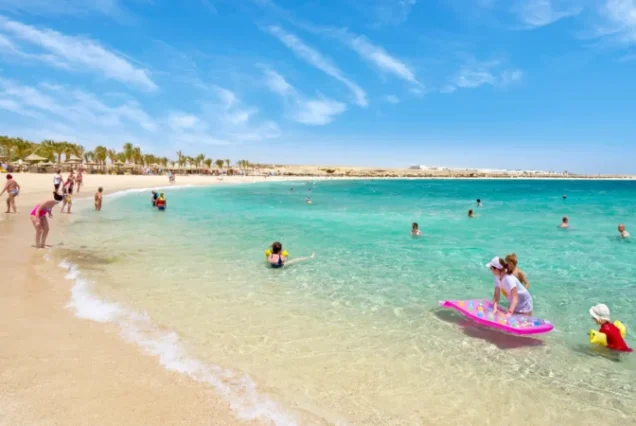
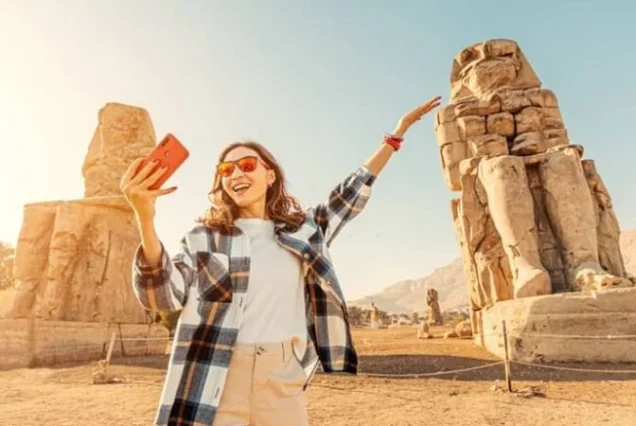
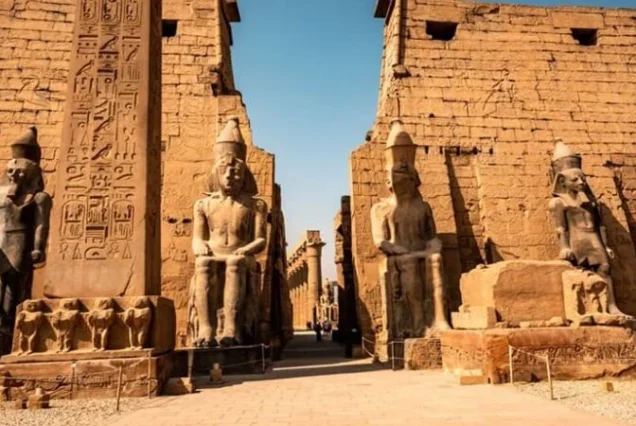
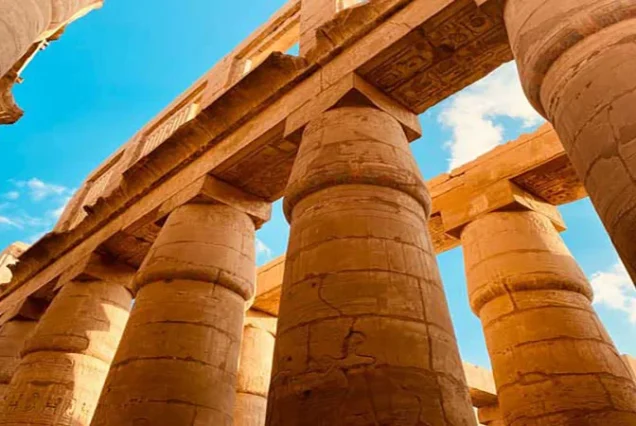

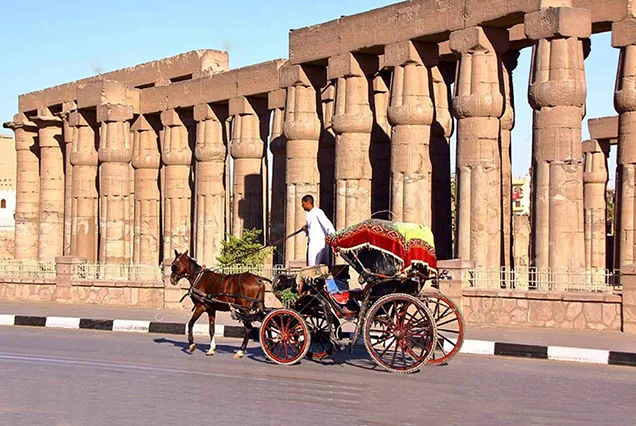


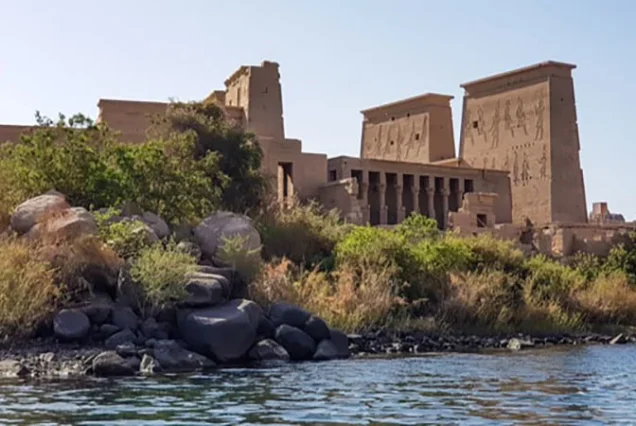

Reviews
There are no reviews yet.